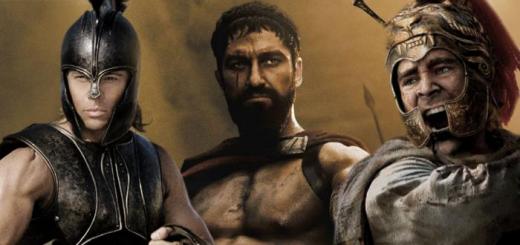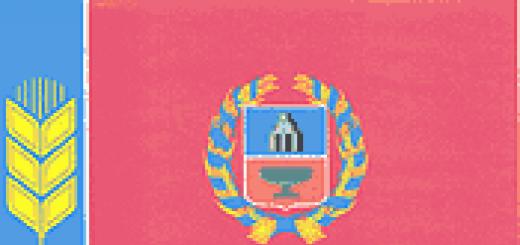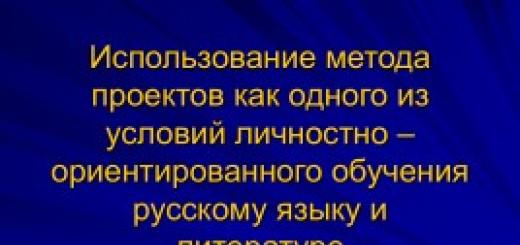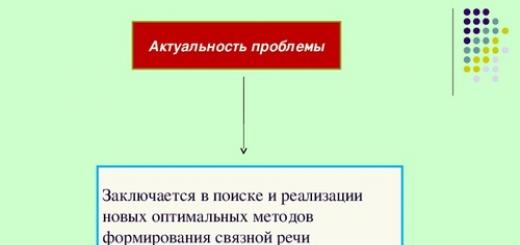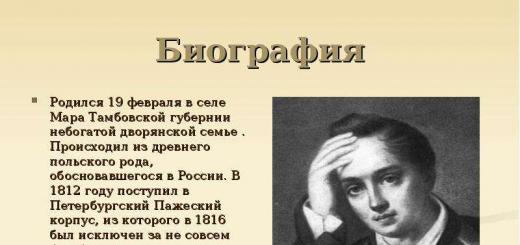Read the text and complete tasks 21-24.
Society cannot do without social and then political institutions - stable social or political institutions, institutions, associations and communities that perform social or political functions necessary for society.
Along with human society, social power arises as its integral and necessary element. It gives integrity to society and serves as the most important factor of organization and order. Under the influence of power, social relations acquire the character of managed and controlled connections, and the joint life of people becomes organized. Thus, social power is an organized force that ensures the ability of a particular social community (the ruling subject) to subjugate people (the subject) to its will, using various methods, including the method of coercion. It comes in two types: non-political and political.
Power cannot function without the will and consciousness of people. Will is the most important element of any social power, without which it is impossible to understand its nature and the essence of power relations. This is due to the fact that power means, on the one hand, the transfer (imposition) by those in power of their will to the ruled, and on the other, the subordination of those subject to this will. Will firmly connects power with its subject: power belongs to the social community whose will is embodied in it. There is no and cannot be power that is subjectless, that is, it does not belong to anyone. That is why the concept of “ruling subject” - the primary source, the primary bearer of power - occupies an important place in the doctrine of power.
Power is impossible without the objects of its influence - individuals, social groups, society as a whole. Sometimes the subject and object of power coincide, but more often than not, the rulers and the ruled are clearly different and occupy different positions in society.
While emphasizing the importance of will as one of the defining elements of power, one should not belittle its other structural elements, in particular such as force. Power may be weak, but devoid of strength, it ceases to be real power, since it is not capable of translating the will of power into reality. Power is stable due to the support of the masses, that is, it relies on the power of authority. To impose its will on the ruled, the ruling subject often relies on ideological influence, including deception and populist promises. But power, especially state power, has objective and material supports - enforcement agencies, armed organizations of people.
The defining feature of power is the ability of those in power to impose their will on others and to dominate those under their control. Hence the negative side of power, expressed in the possibility of its abuse and arbitrary use. It often becomes the subject of intense struggle and clashes between people, political parties, layers and groups.
Explanation.
The correct answer must contain the following elements:
1) two main elements forming the system of social power:
Will and strength;
http://any-book.org/download/62437.html
Reveal the reasons for the emergence of politics as a relatively independent sphere of human and social life.
Politics arose in connection with the need to realize the interests of groups that affected their social status and could not be satisfied without the intervention of public authorities, involving the use of coercive methods. Thus, politics began to regulate not all group interests, but only those that affected their power-significant needs and implied the involvement of a “third” force in the conflict in the person of the state. Due to the spontaneous nature of such competition, K. Mannheim called politics an “independent” value, i.e. a phenomenon that cannot arise as a result of artificial reconstruction.
How does politics differ from other areas of public life?
In politics, communication is carried out regarding power and is aimed at expressing social interests and managing society, and in economics - regarding the production, exchange and distribution of material goods and is aimed at the material life support of people. Politics is a kind of search mechanism for social development, developing its projects, and law is a mechanism for giving such projects a generally significant character. Politics and religion are respectively the sphere of secular and the sphere of spiritual power in society, which throughout history have fought for influence on society and on each other. Morality and politics can be seen as different ways of regulating people's behavior. If morality regulates a person’s behavior from the inside by correlating the motives of his actions with generally accepted moral values (goodness, nobility, justice, etc.), then law and politics are methods of external regulation.
Correlate the main theoretical approaches to understanding politics and, in the context of this, name the distinctive features of politics as a social phenomenon.
Politics is designed to solve the problem of protecting and defending social values - public order, personal dignity of citizens, their safety, freedom, legality, sovereignty, and so on, using appropriate institutions and organizations. An important feature of politics is that it has power and is capable of implementing sanctions in one form or another in relation to individual citizens and entire social groups when it becomes necessary.
Define the policy structure. What are the features of interaction between policy subjects and its other elements?
Structure: political organization, political consciousness, political relations, political culture, political power, political subjects. The peculiarities of the interaction of the subject of politics with other elements lie in subject-object relations. All other elements of the policy structure can act as objects in these relationships.
What criteria underlie the identification of policy types?
Subject of politics; Spheres of political life; Object of influence; Priority of activity (goal)
Expand the content of the function of integrity and stability of society.
is carried out due to the fact that politics determines projects for the future, social guidelines and direction of development, providing them with resources.
Determine the content of the concepts of “goals”, “means” and “methods” in politics..
Policy goals are internally contradictory and diverse. Its overall goal in the social system is the integration of an internally differentiated society, linking the conflicting private aspirations of citizens with the common goal of the whole society. The state is called upon to guarantee a harmonious combination of private and general goals. Policy means are instruments, instruments for the practical implementation of goals, for transforming ideal motives into real actions. “Means” and “methods” of politics are similar concepts. Means are specific factors of influence of its subjects on objects: propaganda campaigns, strikes, armed actions, electoral struggle, etc. The methods of a policy usually characterize the ways in which its means act. These include, first of all, violent and non-violent methods, coercion and persuasion.
Can politics be moral? .
The influence of morality on politics can and should be exercised in a number of directions. This is setting moral goals, choosing methods and means that are adequate to them and the real situation, taking into account moral principles in the process of activity, ensuring the effectiveness of policy. However, meeting all these requirements in real politics is a very difficult task. In practice, its morality depends not so much on the proclaimed goals, but on the methods and means used in the process of achieving them.
What are the reasons for the growth of terrorism as a method of political struggle in the modern world?
“The lack of unity in approaches, assessments and methods of combating terrorism, the lack of a proper legal framework - all these are the reasons for the growth of terrorism” (V.V. Putin)
Correlate the object and subject of political science.
Object the study of political science is politics - political processes occurring in society Subject political sciences are such different in nature institutions, phenomena and processes as:
history of the development of political teachings and theories
political institutions (institute of parliamentarism, institute of executive power, institute of civil service, institute of head of state, judicial institutions)
political culture, political behavior
political consciousness
social thought
international relationships
What content is included in the concept of “political?”
Adj., by value political related
State, civil law.
A person associated with the revolutionary movement (pre-revolutionary colloquial)
Why does a specialist in your training profile need knowledge of political science?
the more political science uses the law, the more thoroughly she studies politics, and the better lawyers know the science of politics, the broader their political horizons and culture.
Relate the content of political philosophy, political theory and empirical political research
political philosophy serves as a general methodological basis for empirical political research, determines the meaning of various concepts, identifies universal principles and laws in the relationship between man, society and government, the relationship between the rational and the irrational in politics, its moral criteria and motivational basis, determines the boundaries and principles of state power and etc. Political philosophy was historically the first form of existence of political theory. Philosophical knowledge forms the core of a person’s worldview and the political culture of society.
Name the main categories of political science. Is there a main (original) category among them?
categories that reveal the dialectics of political existence and political consciousness. These are: political relations, political theory, political ideology, political psychology, etc.
categories that reveal the relationship between interaction in politics and society: state, civil society, political power, political institutions, parties, socio-political movements, etc.
The uniqueness of political science as a science lies in the fact that the key issue and its main category is political power. Political science examines all social phenomena and processes in relation to political power.
How can one explain the existence within the framework of modern political science of a number of private, relatively permanent political disciplines?
Political science develops in close cooperation with other humanities. They are all united by a common object of study - the life of society. Many social, humanities, and even natural sciences are interested in politics as an object of research. They have many common categories, but the subject matter of study is significantly different.
How do methods, techniques and methodology of political research relate?
Methodology is the sphere of political consciousness in which ways of comprehending political reality are realized, as well as the self-awareness of the political mentality itself. Methods of political science research in most cases represent a form, link or method of adapting general and particular methods to the study of specific and unique political phenomena and processes, which involves a certain combination and proportion of “traditional” qualitative and “new” empirical, quantitative methods political knowledge, not reducible to any of these methods separately.
What are the differences between the political thought of the Ancient East and the ancient civilizations of Greece and Rome?
The political teachings of the Ancient East are characterized by the fact that political thought was not distinguished as an independent field of knowledge, it was expressed in mythological form, and the understanding of the divine origin of power prevailed.
Political doctrines of Ancient Greece and Ancient Rome. Characteristic features of the political teachings of this stage: the gradual liberation of political views from the mythological form; their isolation as a relatively independent part of philosophy; analysis of the structure of the state, classification of its forms; search and determination of the best, ideal form of government.
What role did the era of enlightenment play in the development of world political thought?
The Age of Enlightenment can rightly be called the “golden age of utopia.” The Enlightenment primarily included the belief in the possibility of changing people for the better by “rationally” transforming political and social foundations. In the field of politics, jurisprudence and socio-economic life - the liberation of man from unjust bonds, the equality of all people before the law, before humanity. The Age of Enlightenment was a major turning point in the spiritual development of Europe, influencing almost all spheres of socio-political and cultural life. Having debunked the political and legal norms, aesthetic and ethical codes of the old class society, the enlighteners did titanic work to create a positive system of values, addressed primarily to man, regardless of his social affiliation, which organically became part of the blood and flesh of Western civilization.
How does the sociologization of political thought manifest itself in XIX V?
In enhancing their applied nature. In particular, the development of empirical research in the field of political sociology was aimed at providing practical assistance to the state by drawing up specific recommendations for the implementation of political control over society.
What is the behavioral trend in political science?
Behaviorism is one of the leading trends in American psychology of the late 19th - early 20th centuries, the science of behavior. Behaviorism is based on an understanding of human behavior as a set of motor and verbal reactions to the influence of the external environment. The conceptual foundations of behaviorism have influenced Western political science. The behaviorist direction in political science is the study of politics and political relations through the prism of the behavior of individuals and groups based on the widespread use of empirical methods of analysis.
What are the main political concepts and theories considered in modern Western political science from the point of view of their political and ideological orientation?
Behaviorist direction
Structural and functional direction
Hermeneutic direction
Institutional direction
Political and sociological direction
Elitological direction
What are the features of the modern stage of foreign political thought (since the late 70s of the twentieth century)?
The period from the end of the 70s. – XX century Characterized by the search for new paradigms for the development of political science. During this period, the following were developed and developed:
futurological concept of a single world state; concept of post-industrial society; information society concept; concept of national interest; theory of elite democracy; power concept of power.
Modern political theories and concepts can be classified on the following basis:
According to the level of policy objects being studied: the concept of global or international order; societal level concepts; concepts of the political sphere of society and political development; concepts of the most important subsystems of the political system of society; concepts of individual or particular political phenomena.
According to political and ideological orientation: liberal; conservative; social reformist; Marxist; anarchist.
According to the specifics of the subject and object of research: political and legal; sociological; psychological: empirical.
Name the ideological and political trends in the development of Russian political thought in XIX – beginning XX V
Liberalism (ideology of Westernism). M.M.Speransky, P.Ya.Chaadaev, N.V.Stankevich, P.V.Annenkov. By the beginning of the 20th century. On its basis, classical liberalism was formed. V.N. Chicherin; socialized liberalism. P.I.Novgorodtsev. Conservatism (ideology of Slavophilism): reactionary Slavophilism. N.M. Karamzin, S.S. Uvarov, K.P. Pobedonostsev; reformist Slavophilism. A.S. Khomyakov, N.Ya. Danilevsky, V.S. Soloviev. Radicalism. Its foundations were laid by N.A. Radishchev, P.I. Pestel, N.P. Ogarev, A.I. Herzen, V.G. Belinsky, D.I. Pisarev, N.G. Chernyshevsky. By the beginning of the 20th century. Bolshevism developed on the basis of radicalism. V.I. Lenin, I.V. Stalin; anarchism. M.A. Bakunin, P.N. Tkachev, P.L. Lavrov, Social reformism (Menshevism). Yu.O.Martov, G.V.Plekhanov
What, in your opinion, are the differences in the development of domestic political thought in the Soviet and modern periods?
After the October Revolution, the process of crystallization of political ideas into a separate discipline was interrupted. The task of political theory was reduced to justifying the correctness of the political course pursued by the CPSU; political theory was considered bourgeois, and developed within the framework of scientific socialism. Policy research was not aimed at deepening knowledge of the mechanisms of political and state regulation, but at substantiating the prerequisites for the withering away of the political organization of society. For all these reasons, during the Soviet period, political theory noticeably lagged behind world science.
Why can't society get along without power?
society is a collection of individuals whose capabilities differ markedly. People occupy different social positions in society, have different standards of living, material wealth, education, and are engaged in different types of work. some people are talented, others are not very talented, some are active, others are passive, etc. All these manifestations of natural and social inequality of people in society give rise to incompatibility, and sometimes opposition, of their interests and needs. If it were not for the authorities, society would have perished under the weight of endless internal contradictions and struggles. Power coordinates these divergent interests, regulates the relationships between their bearers, ensures the interaction of social actors, and thereby protects society from anarchy and decay.
What content is included in the attribute of power “sovereignty”?
Sovereignty is the independence of state power from any other power within the country and outside it, expressed in its exclusive, monopoly right to independently and freely decide all its affairs. This is one of the indicators of the perfection of a state, that it is becoming developed. At the modern stage of civilization, sovereignty is an integral property of the state. It concentrates in itself all the most essential features of the state organization of society.
What are the differences between behaviorist and structural-functional interpretations of power?
Behaviorist approach: Power is interpreted as a special type of behavior in which some people command and others obey. This approach individualizes the understanding of power, reduces it to the interaction of real individuals, paying special attention to the subjective motivation of power.
The approach is structural-functionalist: Power is considered as a way of self-organization of the human community, based on the expediency of separating the functions of management and execution. Without power, the collective existence of man and the joint life of many people are impossible.
What are the criteria for identifying types of power? What is the difference between political power and state power?
Criteria: from the point of view of its social level, political and non-political, method of organization, legality,
All state power is political in nature, but not all political power is state power. Political power is a public, volitional relationship that is formed between the subjects of the political system of society (including the state) on the basis of political and legal norms. State power is a publicly political, volitional (kerivnitstva - subordination) relationship that is formed between the state apparatus and the subjects of the political system of society on the basis of legal norms, from spiranny, if necessary, to the state Primus. State power is relatively independent and forms the basis of the functioning of the state apparatus.
Correlate the content of the following forms of power - “domination”, “leadership” and “management”
Domination is inextricably linked with power and is a form of its social organization. Dominance is expressed in economic, political and ideological forms. Management- this is the ability of an individual, party, class, group to carry out its political line by influencing spheres, objects, groups, and individuals by various methods and means of power. Management is carried out on the basis of vertical connections, subordination relationships and requires the unconditional subordination of the performer to the manager. The basis of leadership is the administrative system, strict discipline and self-discipline. The meaning and purpose of management is to ensure compliance with the functioning of the entire system to achieve the goals of the organizer. Control- this is the use of authority to shape the purposeful behavior of objects. Management must ensure optimal interaction between work collectives, parties, the population of the region, district, etc. Through management and organization, the implementation of political, economic and other programs is carried out.
What power resources does the modern political regime in Russia use?
Economic: fertile lands, minerals, plants, factories, money, equipment, etc.
Social: education, healthcare, social security, etc.
Political: political structure of power, its organization, legitimacy, image of leaders, implemented social problems that are significant for the masses, international political means of solving global and foreign policy problems, etc.
Spiritual: knowledge, information, means of obtaining and disseminating it. As well as the traditions of society, cultural heritage, public sentiments of people, prestigious education
Security forces: armed forces, law enforcement agencies, state security agencies and other security agencies.
Demographic resources
The resources of the executive power system in Russia include, in addition to traditional ones, research work, a number of specific proposals aimed at improving the organization and regulation of the civil service, information support for the executive power, etc.
What content is included in the concept of “legitimacy of power” and how does it relate to the concept of “legitimacy of power”?
Legitimacy means recognition by the population of a given government and its right to govern. Legitimate power is accepted by the masses, and not simply imposed on them. The masses agree to submit to such power, considering it fair, authoritative, and the existing order the best for the country. Legality and legitimacy are not the same thing. The legality of power is the legal justification of the legal existence of power, its legality, compliance with legal norms. Legitimacy does not have legal functions and is not a legal process. Any government that makes laws, even unpopular ones, but ensures their implementation is legal. At that time it may be illegitimate and not accepted by the people. There may also be illegal power in society, for example, the mafia.
Determine the resources of rational-legitimate power
rational legitimacy that arises as a result of people’s recognition of the fairness of those rational and democratic procedures on the basis of which the system of power is formed. This type of support develops due to a person’s understanding of the presence of third-party interests, which presupposes the need to develop rules of general behavior, following which creates the opportunity to realize his own goals. In other words, the rational type of legitimacy essentially has a normative basis, characteristic of the organization of power in complexly organized societies. People here are subject not so much to individuals embodying power, but to rules, laws, procedures, and, consequently, political structures and institutions formed on their basis. At the same time, the content of rules and institutions can change dynamically depending on changes in mutual interests and living conditions;
What type of legitimacy of political power takes place in modern Russia?
multi-element legitimacy - simultaneously relies on traditions, beliefs, feelings, rationality, etc. The situation of economic and social instability reduces the capabilities of the government, since its own social base is still small and it constantly has to reconcile very different and sometimes opposing interests. For these reasons, multi-element legitimacy reflects the discrepancy between the legality of power (its constitutionality) and legitimacy (support by the majority of the population), and gives rise to contradictory attitudes towards its decisions.
What is political socialization and what role does it play in the formation of personality as a subject of politics?
Political socialization- this is the process of integration (entry) of a person into the political life of society. This process begins in early childhood and continues throughout the individual's life. Political socialization gives a person the opportunity to adapt to a specific political system, to assimilate the requirements of status behavior, to adequately respond to certain political phenomena, to determine his political position, his attitude towards power. However, the main thing is that in the process of socialization a person becomes a full-fledged subject of the political process, capable of realizing and protecting his personal and group interests.
What is the content of the concept “agents of socialization”?
A.G. - institutions, people and social groups that promote socialization personality. Since socialization is divided into two types - primary and secondary, agents and institutions of socialization are divided into primary and secondary. Agents of primary socialization are a person’s immediate environment: parents, brothers, sisters, grandparents, close and distant relatives, babysitters, family friends, peers, teachers, coaches, doctors, leaders of youth groups. Agents of secondary socialization are representatives of the administration of a school, university, enterprise, army, police, church, state, employees of television, radio, press, parties, courts, etc.
How do the types of political socialization compare in modern Russia?
Societies moving from totalitarianism to democracy are characterized by the contradictory interweaving of two trends in the process of political socialization. On the one hand, the democratization of public life expands the possibilities for individual political participation, the inclusion of previously politically passive groups of the population in politics, and increases citizens' awareness of the activities of government structures. On the other hand, political apathy, alienation, and disbelief are growing as a reaction of individual and mass consciousness experiencing a psychological restructuring to the fall in living standards and the collapse of ideals.
What determines the special role of political elites in the political life of society?
The political status of the elite is determined by its rights and responsibilities in society: it prescribes to it the right to make the most important political decisions, but at the same time makes it responsible for the consequences of their implementation. The importance of the political elite in society is determined by the role of politics, acting as a mechanism for ordering and regulating social relations and realizing generally significant interests. Political and administrative functions in society are carried out by the political elite by making the most important political decisions. To do this, she needs special knowledge that the majority of the population does not have. In addition, political elites represent group interests in politics and create optimal conditions for their implementation and coordination. Consequently, the political elite is a privileged group that occupies leadership positions in power structures and is directly involved in making the most important decisions related to the use of power.
No society can do without social regulators, with the help of which people’s behavior is regulated. Where there is a society, there must be community rules, or social norms. Social norms determine a person’s behavior in society, and, consequently, a person’s attitude towards other people.
Any rules or requirements established by a person in relation to himself cannot be considered as social, since the latter necessarily involve a person addressing another person.
Social norms are not applicable in the sphere of regulating human relations with the animal world, since for the process of emergence and existence of social norms and relations, their awareness and understanding are necessary first of all.
The object of regulation of social norms is the behavior of those subjects to whom they are addressed, that is, social relations.
Social norms are rules governing the behavior of people and the activities of organizations in their relationships with each other.
Social norms are diverse, but a number of common features can be identified that are in one way or another characteristic of all these norms. Social norms have the following characteristics:
These are the rules of human behavior, i.e. patterns of behavior, measures of proper and possible behavior of subjects;
They are general in nature (their requirements apply not to a specific person, but to many individuals);
These are mandatory rules of behavior (however, mandatoryness manifests itself in different ways; mandatoryness and coercion should not be confused - not all norms are coercive).
The system of social norms of modern society includes law, morality, customs, religious norms, etc. Differences between them
are carried out according to the methods of establishment and forms of expression, according to the content and methods of influencing people’s behavior and social relations, and according to the means of protecting these norms from violations. The diversity of opinions regarding a clear definition of the list of social norms can be, to a certain extent, explained by the fact that the process of differentiation of social norms has not yet been completed (law has become more isolated, less morality).
Norms of morality (morality) are rules of behavior that are established in society in accordance with people’s ideas about good and evil, justice and injustice, duty, honor, dignity and are protected by the power of public opinion or internal conviction.
Political norms are rules of behavior that have developed in the political system of society, apply to various subjects of political relations and regulate relations regarding the implementation and functioning of state power in a given society.
Corporate norms are rules of behavior that are established by public organizations themselves and are protected through measures of social influence provided for by the charters of these organizations.
Customary norms are rules of behavior that have developed in a certain social environment and have become a habit of people (they are carried out by force of habit) as a result of repeated repetition.
Traditions are orders and rules of behavior passed on from generation to generation.
Today, traditions also mean the rules for holding any celebrations that are significant for a person or group of people (wedding, birthday, etc.). Traditions in property relations are called business customs or business customs. So, in Art. 5 of the Civil Code of the Russian Federation provides for the possibility of applying stable rules that do not contradict the law in business activities. Article 13 of the Arbitration Procedural Code of the Russian Federation establishes that “arbitration courts
9.2. The relationship between law and morality
in cases provided for by federal law, business customs are applied.”
It is necessary to distinguish customs from rituals and ceremonies. Custom sets the framework for the expediency of an action, and ritual is a specific design of existing social relations (rituals can be marriage, military, etc.).
Customs should not be confused with common law. Customary law is state-sanctioned norms of primitive customs, reflecting the interests of the community and protected by the power of state coercion. Today, customary law exists in some countries in South America, Southeast Asia and Africa. But even in developed countries, the norms regulating marriage and family relations and inheritance are customs legalized by the state.
In addition, there are other social norms: religious, family, etiquette, rituals, ethics, etc.
Social norms include legal norms.
Legal norms are generally binding, formally defined rules of behavior established or sanctioned by the state, acting as a regulator of social relations and secured by state coercion.
Legal norms occupy a special place among social norms because they have a number of specific features. In particular, only legal norms have formal certainty (the presence of stable sources, a clear designation of the circumstances leading to the occurrence of offenses, the rules of behavior themselves, the consequences of their non-compliance); state security (if the requirements of legal norms are violated, coercive measures may be applied); close connection with the state (legal norms come from the competent state bodies or are sanctioned by them); representative-binding nature (in a legal norm, the subjective right of one subject is opposed by the legal obligation of another subject).
You can also find the information you are interested in in the scientific search engine Otvety.Online. Use the search form:
More on the topic Social norms: concept and types:
- 36. The concept of the rule of law. Difference between legal and social norms
- Section III MODERN VIEW OF LAW. MORAL ADEQUATE LAW AS A SYNTHESIS OF POSITIVE PROPERTIES OF DIFFERENT SCHOOLS OF LAW Topic 13 THE CONCEPT OF SOCIAL REGULATION. SOCIAL NORMS
Text 1
Law and law
[There is the following understanding of the essence of law]: law is not laws adopted by democratically elected institutions and expressing the sovereign will of the people, but general (abstract) principles of humanism, morality, and justice. But such vague, amorphous ideas about law distance us from the desired legal order and the tasks of strengthening it, because these principles, ideas (“unwritten law”), despite their undoubtedly high value, still cannot on their own, without the necessary formalization , serve as criteria for what is legal and illegal, legal and illegal, and therefore are unable to ensure stability and organization in society. The normative basis of law disappears and its regulatory role is undermined.
In this case, scope opens up for... arbitrariness, since freedom, democracy, morality are understood by different political subjects, including those in power, in different ways... And why are laws (normal, humane, created in compliance with all generally accepted procedures) not can express the above ideals? A difficult question also arises: who and how should determine whether this or that law is “legal” or “illegal”? Where are the criteria? Who are the judges?
Of course, the categories of law and law do not coincide. Law is one of the forms of expression of law... their identification is unacceptable. But excessive opposition of these two concepts does not lead to the achievement of positive goals. This gives rise to legal nihilism...
N.I. Matuzov
C1. Indicate two approaches to understanding the essence of law described in the text.
C2. Which of these approaches, from the author’s point of view, is correct? Give any three arguments with the help of which the author shows the inconsistency of the other approach.
NW. What term equivalent to the term “source of law” is used in the text? Does the author believe that laws are the only source of law? Based on your knowledge of the social science course, indicate three other sources of law.
Text 2
“Society cannot do without social regulation, in the system of which law plays a leading role. Law is part of social control; it expresses the basic postulates of a given society, based on state support. Law as a social institution is a way of regulating the behavior of people, a measure of their freedom, which is expressed in a system of generally binding social norms established or sanctioned by the state, regulating the actions, behavior and relationships of people (their groups, state and public bodies, organizations and institutions) and secured by state coercion or its threat.<...>
The generally binding systemic-normative nature and essence of law predetermine its primary role in the social management of public life, where the objects and at the same time the subjects of such management are both individuals and their groups, as well as social institutions and organizations. Since the political organization of society arose, law has played the most important role in restraining people from antisocial behavior and ensuring the fulfillment of their duties for the benefit of a civilized society. This provision objectively reflects the place and role of law in the historical development of mankind and, of course, is not aimed either at artificially diminishing the importance of morality and religion, customs and traditions in social control, or at recognizing any right always and under in all conditions the embodiment of humanism and civilization.<...>
There is no dispute about “law” and “right” - closely interrelated and interpenetrating concepts that it is unlawful to separate, much less oppose. But they cannot be identified"
Tadevosyan E. V. Sociology of law as a specific branch of sociology
// Social and humanitarian knowledge. 2000. No. 2. P. 102-104.
C1. Based on the text, reveal the essence of law. What features distinguish it from other social institutions?
C2. What is the role of law, according to the author, in the historical development of mankind? Explain why this role is due.
NW. The author argues that not every right and not under all conditions is the embodiment of humanism and civilization. Based on your knowledge of social science courses, give examples of states with such legal systems.
C4. Explain how the concepts of “law” and “right” are related to each other. Which one is broader in content? Give three relevant reasons.
Text 3
The main place among social relations regulated by civil law is occupied by property relations in commodity-money form associated with the possession and disposal of property. Property in civil law means not only things, money, securities, but also property rights (for example, a deposit in a bank is nothing more than a claim). Property relations always arise and exist either in connection with the possession of property by a certain person (real relations), or in connection with the transfer of property from one person to another (obligatory relations). Property relations mediate the right to a thing in statics, i.e. associated with ownership, possession of one or another property for which no agreement was concluded. The owner of a thing treats it as his own, i.e. owns, uses, disposes of, and also bears the burden of care and maintenance of the property. On the other hand, the owner of a thing has the right to eliminate interference of other persons in his property activities, i.e. has absolute protection, defending its property rights against anyone and everyone, including against the state. /…/
Obligatory relations mediate only the right to a thing in dynamics, i.e. are associated with the transfer of property benefits from one person to another, and implement the process of exchange of objects of civil rights. Obligatory relations can arise from various grounds, the most important of which is an agreement, as well as a unilateral transaction. Obligations can also arise from harm caused by one person to another, from unjust enrichment. Personal non-property relations are those relations the subject of which are intangible benefits, /.../ inseparable from the person. Personal non-property relations can be divided into: those directly related to property ones, i.e. such relationships, the entry into which may entail property consequences for the subject of these relationships /…/; Non-property relations also include purely personal relations.
(T.V. Kashanina, A.V. Kashanin)
C1 What is meant by property in civil law? In what form do property relations exist?
C2 Based on the text, indicate what are the similarities and differences between the concepts of “material relations” and “obligatory relations”.
C3 Indicate any three reasons for the obligations mentioned in the text. Describe, as an example, any situation in which any of the obligations you have indicated arises.
C4 The text talks about two types of non-property relations. Give one example of each. Using one example, explain how non-property relations can be related to property ones.
Text 4
Citizenship in Ancient Athens
The entire set of rights and privileges were enjoyed (according to the law of Pericles) only by those persons (male) whose father and mother were natural and full citizens of Athens.
Citizenship was acquired from the age of 18. Then, for two years, the young man served in military service. From the age of 20 he was allowed to participate in the national assembly. The formal equality of full citizens did not exclude their actual inequality, determined by the inequality of property. The situation of freed slaves was close to that of foreigners. They were recognized as having human dignity. It's a different matter, slave. The slave was only a thing, its living likeness. It could be sold and bought, rented out. He couldn't have a family. The children he had as a result of his relationship with a slave were the property of the owner.
The only thing the law prohibited the owner was killing a slave.
The situation of women in Athens deserves special mention. She had neither political nor civil rights.
Citizenship in Ancient Rome
Roman citizenship was acquired by birth from a full father and mother. Upon reaching adulthood, a Roman youth became politically equal.
Roman citizenship was lost through sale into slavery for debts or crimes, as well as through exile or exile.
Political full rights did not yet mean full “civil” rights, that is, the right to dispose of property. While the father was alive - and the son, according to tradition, was under his authority (that is, as part of the father's family), he could not make any transactions with things and money unless he had the direct authority of the father. Both political and civil rights were the property of men. This, of course, does not mean that women are completely excluded from participation in the affairs of the family and society. The woman's influence was indirect, but quite significant. By raising children, her position as the mistress of the house, family ties, her intelligence, charm, and finally, her heroism, a Roman woman more than once had a decisive influence on the fate of her native city.
C1. What did citizenship have in common in Ancient Athens and Ancient Rome?
C2. How was the full rights of a citizen expressed in these states?
C3. Prove that the title of citizen was honorary in both Ancient Athens and Ancient Rome.
C4. Assess the legal status of women in Ancient Athens and Ancient Rome. Express your attitude towards him.
In the section on the question Help asked by the author Fgh dfgh the best answer is C1 Based on the text, reveal the essence of law. What features distinguish it from other social institutions?
Law is part of social control; it expresses the basic postulates of a given society, based on state support. Law as a social institution is a way of regulating the behavior of people, a measure of their freedom, which is expressed in a system of generally binding social norms established or sanctioned by the state, regulating the actions, behavior and relationships of people and secured by state coercion or its threat.
Signs of law that distinguish it from other social institutions:
State establishment
General obligation
Government sanctions
State guarantees
C2 What is the role of law, according to the author, in the historical development of mankind? Explain why this role is due.
The role of law in the historical development of mankind is to deter people from antisocial behavior and ensure the fulfillment of their duties for the benefit of a civilized society.
C3 The author argues that not every right and not under all conditions is the embodiment of humanism and civilization. Based on your knowledge of social science courses, give examples of states with such legal systems.
In most cases these were totalitarian states:
USSR under Stalin
Germany under Hitler
Italy under Mussolini
C4 Explain how the concepts of “law” and “right” relate to each other. Which one is broader in content? Give three relevant reasons.
The concepts of “law” and “right” are interconnected and interpenetrating, which cannot be separated, much less opposed. But they cannot be identified. In its content, the concept of “law” is broader than the concept of “law”, since law is the entire set, or rather, the system of laws existing in a given state. The following can be cited as justifications:
The right is expressed not only in laws, but also in by-laws and court decisions
Law is not only laws about themselves, but also their action, relationships based on them
Law can also manifest itself in non-legislative form: there are also natural law, universal human rights, principles and norms of international law


